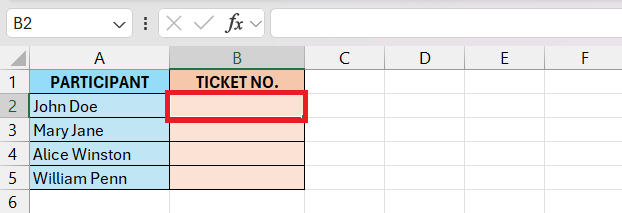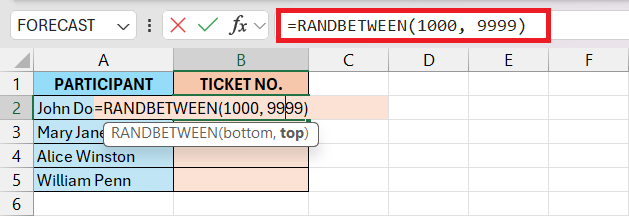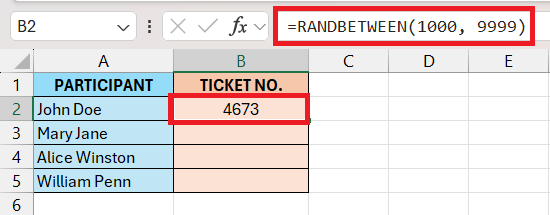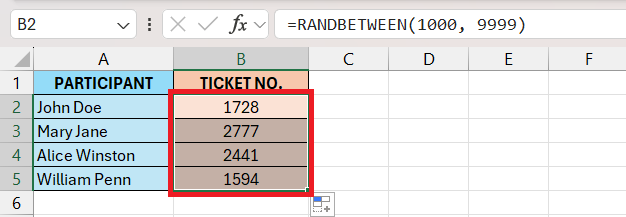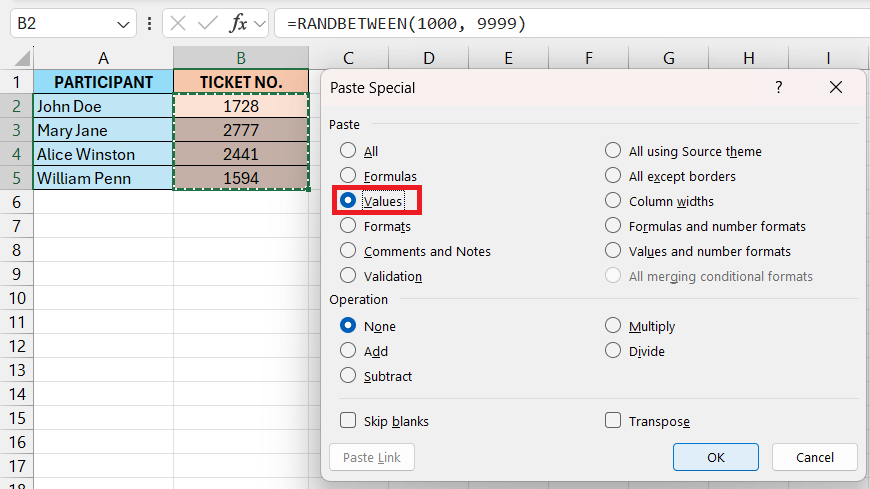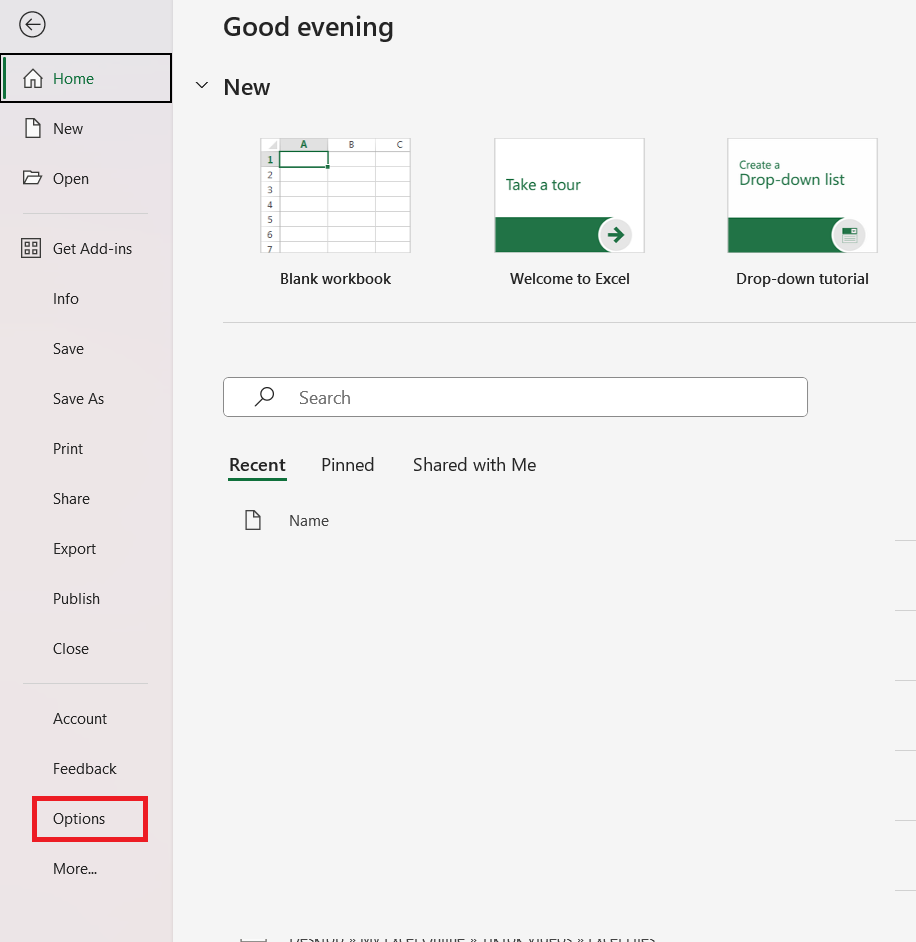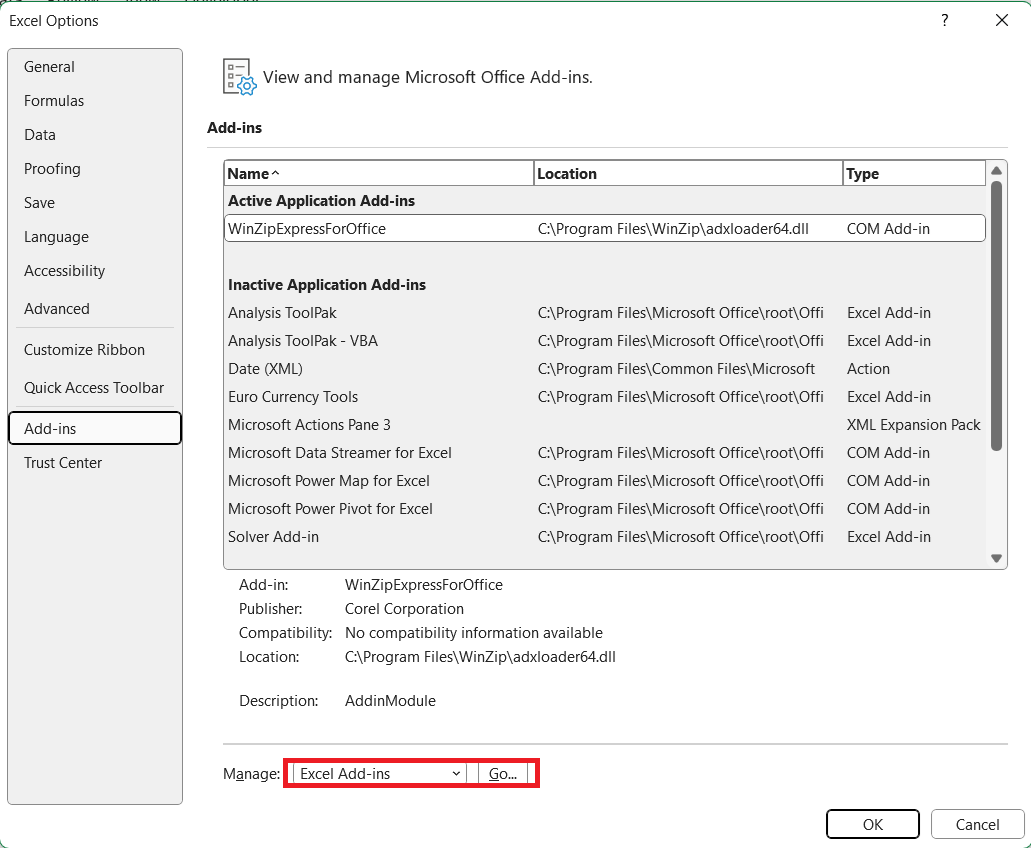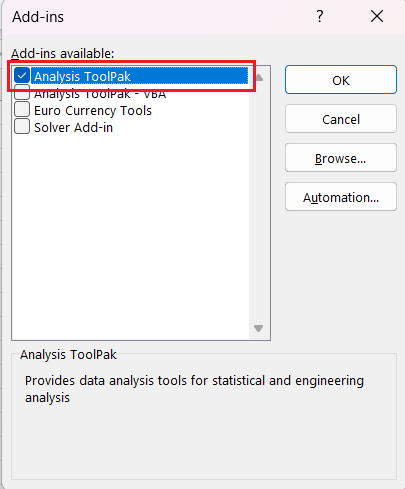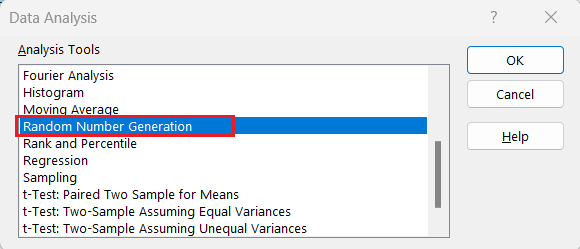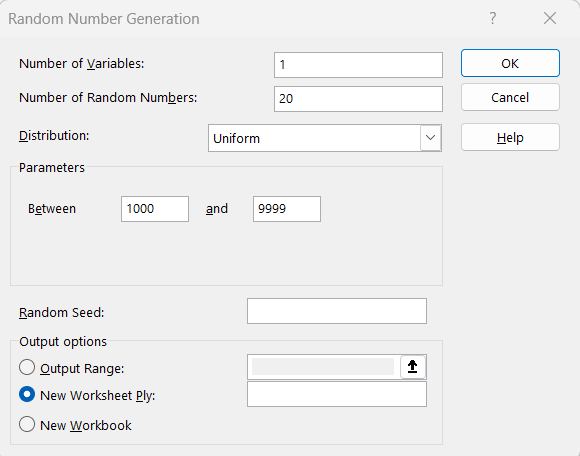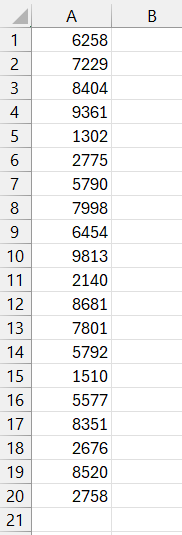This article introduces a comprehensive guide on generating random 4 digit numbers in Microsoft Excel, highlighting its versatility in data management and importance in security, simulations, and research. It details the use of Excel’s RAND, RANDBETWEEN functions and Analysis ToolPak add-in for creating specific numeric sequences and provides a step-by-step approach to generating non-repeating, unbiased 4-digit numbers, showcasing Excel’s capability to meet various professional needs with precision and efficiency.
Key Takeaways
- Excel’s RAND and RANDBETWEEN functions enable efficient generation of random numbers, crucial for statistical analysis, simulations, and security.
- Generating 4-digit random numbers in Excel is vital for applications like two-factor authentication, simulations, and unbiased sampling in research.
- The RANDBETWEEN function is specifically used for creating 4-digit numbers between 1000 and 9999, ensuring outputs have exactly four digits.
- The Analysis ToolPak add-in in Excel facilitates advanced random number generation, offering a more efficient method for creating large sets of random numbers.
Download the workbook and follow along with the tutorial on How to Generate Random 4 Digit Number in Excel – Download excel workbookRandom-4-Digit-Number-in-Excel.xlsx
Table of Contents
Unveiling the Excel Mastery
The Versatility of Excel in Number Generation
Excel is not just a spreadsheet software, it’s a powerful tool that handles a variety of data management tasks with efficiency. Among its many features is its capability to generate random numbers, which is essential for tasks like statistical analysis, data sampling, and simulations.
Why 4-Digit Random Numbers Matter
Common Uses in Daily Tasks and Security
Random numbers play a pivotal role in daily business operations and security protocols. Here are some common applications:
- Two-Factor Authentication (2FA): Security processes often require random digits to generate one-time passwords (OTPs) for user verification.
- Simulation and Modeling: Professionals in finance or engineering may use random numbers to simulate market scenarios or stress test structures.
- Lotteries and Games: Gaming industries extensively rely on fair and unpredictable draws, often created with random number generators.
- Sampling for Surveys and Research: Random digit tables help in selecting unbiased samples for research studies or audits.
By generating 4-digit numbers randomly, Excel ensures that these processes remain objective and unmanipulable.
Taking the First Leap
Familiarizing with the RAND and RANDBETWEEN Functions
Before we can generate specific number sequences, it’s essential to understand the tools at your disposal within Excel.
RAND Function: This function generates a random decimal number between 0 and 1. It’s great for when you need a random value, but it’s not specific to any range or set of digits.
Example usage: =RAND()
RANDBETWEEN Function: This function takes two arguments—the bottom and top values—and returns a random integer within this inclusive range. It’s particularly useful when you need random whole numbers within a specified range.
Example usage: =RANDBETWEEN(1, 100)
Understanding how these functions work is the first step in harnessing Excel to generate random numbers that suit your unique needs, such as creating 4-digit random numbers.
Setting the Stage for 4-Digit Specifics
To generate a 4-digit random number in Excel, we specifically target numbers from 1000 to 9999. This sets a clear boundary for the random number generation, ensuring each output will have four digits.
Before diving into the process, it’s important to set up your Excel worksheet accordingly:
- Ensure that the cells are formatted as ‘General’ or ‘Number’: This prevents any formatting issues that might occur with leading zeros in numbers.
- Decide the number of random numbers needed: This will determine how you structure the formula and whether you need to create single instances or arrays of numbers.
- Prepare for recalculation: Note that Excel’s random number functions recalculate with every worksheet change. Decide whether this is a desired feature or if you need to take additional steps to prevent it.
With the stage set and comprehension of the functions to be used, you’re now ready to generate 4-digit random numbers in Excel.
Crafting 4-Digit Numbers with Precision
Customize with RANDBETWEEN: Step-by-Step Guide
To create 4-digit numbers, we’ll use the RANDBETWEEN function within a specified range of 1000 to 9999. Follow this step-by-step guide to generate your numbers:
STEP 1: Select the Cell: Choose the cell where you want to see the first random 4-digit number appear. Let’s say this is cell B5.
STEP 2: Enter the Formula: Type in the formula specifically designed to output 4-digit numbers.
STEP 3: Press Enter to see the first random number in cell B5.
STEP 4: Fill the Range: If you need more than one random number, drag the fill handle down from the corner of the cell to fill the range you want with 4-digit numbers. Alternatively, you can select a range of cells, type the formula, and press Ctrl + Enter to fill all selected cells with random numbers at once.
STEP 5: Static Values: If you need the numbers to remain static and not change every time the worksheet recalculates, copy the range of cells with the random numbers and paste them as values (right-click -> Paste Special -> Values).
By following these steps, you now have a set of random 4-digit numbers generated in Excel which can be used for various applications and analyses.
Combining Functions for Enhanced Randomization
To achieve more complex or specific types of randomization, Excel allows you to nest the RAND and RANDBETWEEN functions with other functions. Here’s an example of such a combination:
Rounding Random Decimals to Generate Whole Numbers: Combine RAND with the FLOOR or CEILING function to generate whole numbers with more control over rounding direction and multiples.
Example usage to yield a 4-digit number:
or,
This example utilizes the RAND function to obtain a random decimal, multiplies it by the top range of our 4-digit number (9000), and adds the lowest 4-digit number (1000) to ensure the result falls within the correct range. The FLOOR or CEILING function then rounds the number down or up to the nearest whole number respectively.
These higher-level techniques require a more in-depth understanding of Excel functions and their compatibility with each other. Nevertheless, they provide the ability to tailor random number generation to fit advanced needs and specifications.
Harnessing Excel’s Full Potential
Tools and Add-ins for Random Number Generation in Excel
Harnessing Excel’s full potential for random number generation can be further expanded with the use of tools and add-ins, such as the Analysis ToolPak. Here’s how you can use this add-in to advance your random number generation techniques:
Install the Analysis ToolPak:
STEP 1: Navigate to the File tab on the ribbon. Click Options to open Excel Options.
STEP 2: In the dialog box that appears, select Add-Ins from the left sidebar. In the Manage box at the bottom, select Excel Add-ins and click Go.
STEP 3: In the Add-ins available box, check Analysis ToolPak and click OK.
Generate Random Numbers:
STEP 1: Go to the Data tab, then find the Analysis group where the Data Analysis tool appears.
STEP 2: Click Data Analysis and select Random Number Generation.
STEP 3: Define the parameters:
- Set the Number of Variables as 1 for a single column of numbers.
- Specify the Number of Random Numbers you need.
- Select Uniform as the Distribution type.
- Enter 1000 as the bottom and 9999 as the top values to set the range.
- Choose the Output Range to determine where the results should be placed.
- Click OK, and Excel will populate the specified range with unique random 4-digit numbers.
This approach is especially useful when you require a large set of random numbers, as it can be more efficient than filling down formulas across many cells.
The result looks like this –
Note: While the Analysis ToolPak is installed by default in newer versions of Excel, in older versions, you may need to perform a one-time installation from the Excel Options dialog.
Coupling these tools with Excel macros can take random number generation to new heights, catering to more complex and specific requirements in data processing tasks.
FAQs: Mastering Random 4 Digit Number in Excel
How do I generate random 4 digit numbers in Excel?
To generate random 4-digit numbers in Excel, you can use the `RANDBETWEEN` function by typing `=RANDBETWEEN(1000,9999)` into a cell to get a random number between 1000 and 9999.
Why is it important to generate random numbers in Excel?
Generating random numbers in Excel is crucial for ensuring fairness and objectivity in various applications, such as simulations, experiments, and gaming. It allows for unbiased sampling, testing hypothesis validity, and maintaining security with unpredictable encryption keys and passwords. The use of random numbers in Excel enhances the integrity and reliability of data analysis and decision-making processes.
How to Create a Non-Repeating Set of 4-Digit Numbers?
To create a non-repeating set of 4-digit numbers in Excel, you can use the formula `=TEXT(ROW(A1)-1,”0000″)` in a blank cell and then drag the autofill handle down until you have listed all 10,000 unique combinations, ranging from 0000 to 9999. Ensure the column where numbers will be placed is formatted as ‘Text’ to maintain leading zeros. Remember, you cannot generate more than 10,000 unique 4-digit combinations; hence the maximum non-repeating set will be 10,000 numbers.
John Michaloudis is a former accountant and finance analyst at General Electric, a Microsoft MVP since 2020, an Amazon #1 bestselling author of 4 Microsoft Excel books and teacher of Microsoft Excel & Office over at his flagship MyExcelOnline Academy Online Course.



